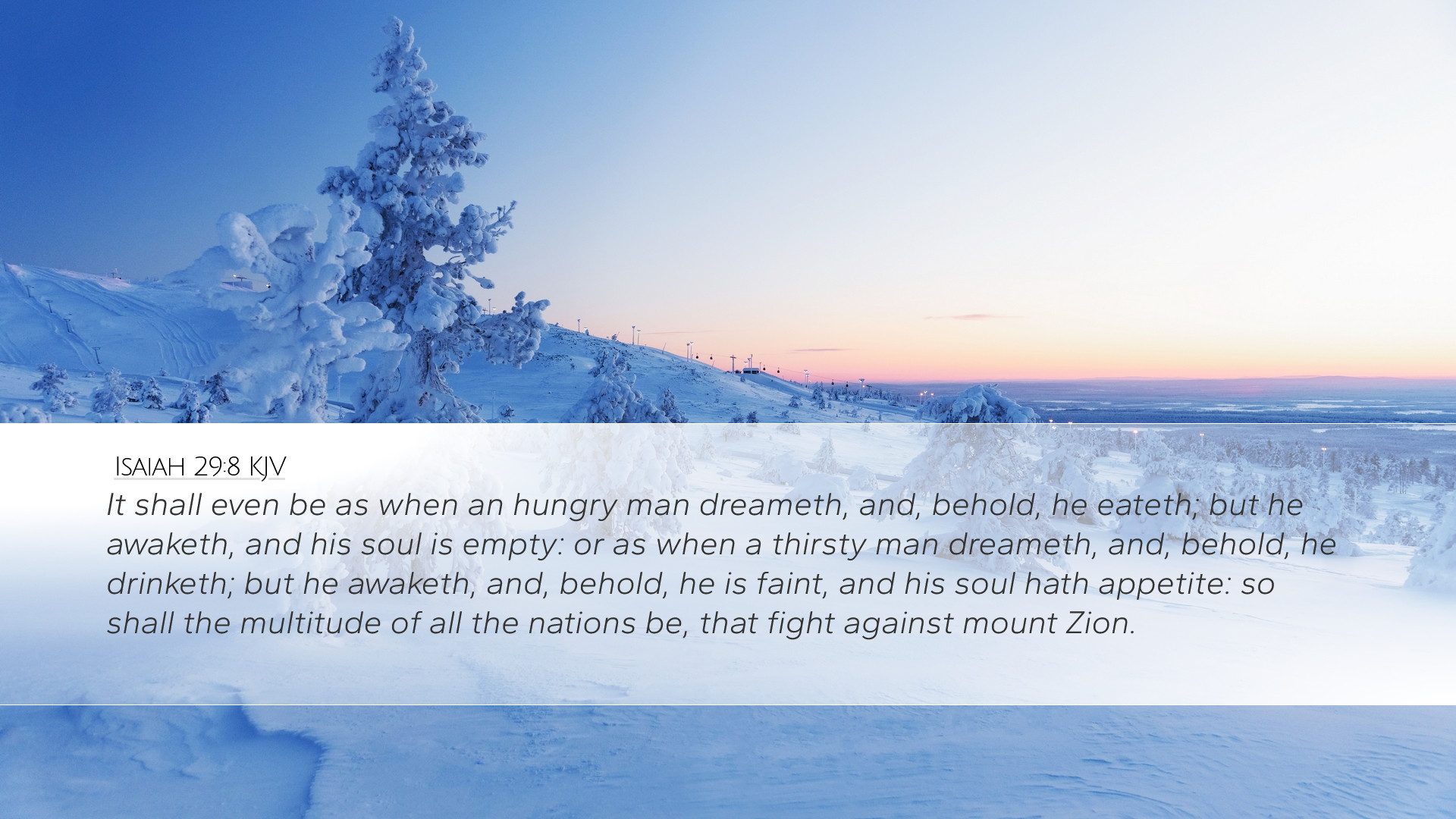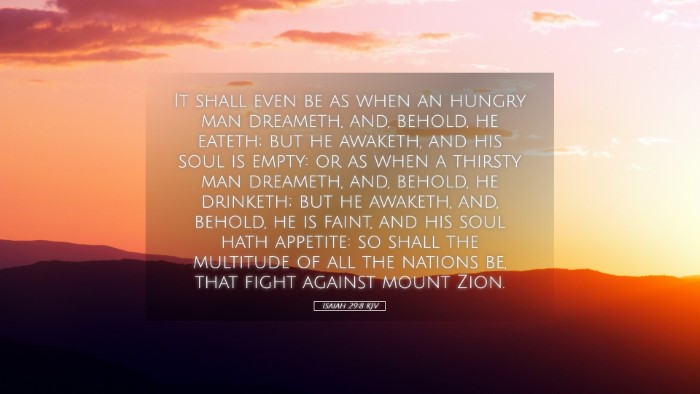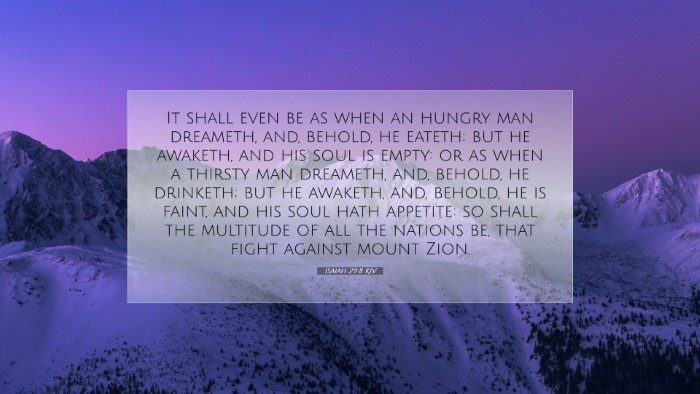Insights on Isaiah 29:8
Verse: Isaiah 29:8 - "It shall even be as when a hungry man dreams, and, behold, he eats; but he awaketh, and his soul is empty: or, as when a thirsty man dreams, and, behold, he drinks; but he awaketh, and, behold, he is faint, and his soul hath appetite: so shall the multitude of all the nations be, that fight against mount Zion."
Contextual Overview
The book of Isaiah is rich in prophetic literature, warning and comforting the people of Judah during a time of impending judgment. Chapter 29 serves as a profound passage wherein the Lord reveals the futility of those who oppose His purposes. This verse specifically employs vivid imagery to illustrate the disappointment experienced by those who strive against God’s chosen people.
Exegesis
In this verse, Isaiah utilizes the analogies of hunger and thirst to depict a deep human longing that cannot be satisfied. Matthew Henry notes that the dreams of a hungry man and a thirsty man reflect the disillusionment of those who pursue their desires outside of God’s provision. This lack of fulfillment illustrates a greater spiritual truth: those who seek to thrive against God’s will will ultimately find their efforts empty.
Moreover, this notion is echoed by Albert Barnes, who emphasizes the disappointment felt by nations that seek to undermine the work of God. He suggests that, like a man who dreams of eating and wakes to find himself still hungry, those who rise against Zion will ultimately realize the futility of their efforts. Barnes articulates that this emptiness is not only physical but deeply spiritual, as it represents a life devoid of true sustenance in God.
Imagery of Hunger and Thirst
Adam Clarke expounds on the imagery of longing by indicating that hunger and thirst symbolize a universal human condition, making the message accessible across cultures. Clarke elaborates that the dream motif signifies a false reality that provides no actual nourishment. For the nations, the pursuit of wealth, power, or dominance without God leads only to spiritual barrenness.
This theme of longing and satisfaction is profound, indicating that despite their efforts and dreams of conquest, these nations will find nothing to fill their spiritual void.
Theological Implications
This verse presents significant theological implications about the nature of human pursuit and divine sovereignty. It emphasizes that any endeavor outside of God’s will is ultimately doomed to failure. Both Matthew Henry and Albert Barnes highlight that God, in His sovereignty, ensures that those who oppose His purposes will be left wanting.
The phrase "so shall the multitude of all the nations be" indicates a comprehensive judgment that implies not merely a select few but a wide-ranging admonition against all who oppose God's covenantal promise with Zion. Consequently, the understanding of Zion as representing the people of God embodies the security and assurance of divine oversight and protection.
Practical Applications for Believers
- Seeking True Fulfillment: This passage serves as a reminder for believers to reflect on what they seek for satisfaction. The pursuit of worldly ambitions apart from God will lead to spiritual emptiness. Instead, believers are urged to seek fulfillment in Christ, who is the Bread of Life and the Living Water.
- God’s Faithfulness: For those who may feel overwhelmed by opposition or discouragement, Isaiah 29:8 reassures that God knows and sees the struggles of His people. The defeat of adversaries is inevitable in light of God’s faithfulness to His covenant.
- Understanding Our Needs: The use of hunger and thirst poignantly captures human needs. As believers, this verse compels a deeper understanding of our spiritual needs and an acknowledgment that only God can truly satisfy them.
Concluding Thoughts
Isaiah 29:8 presents a stark warning against the futility of human endeavors opposed to God’s will. It serves as a dual reflection of human desire and the ultimate reality of divine sovereignty. For pastors, students, theologians, and Bible scholars, this verse invites a proactive engagement with the realities of spiritual hunger and the sufficiency found exclusively in God’s provision.
As we navigate our pursuits in life and ministry, this passage encourages constant alignment with God’s purpose, ensuring our spiritual appetites are filled only through Him. May this understanding drive believers towards deeper communion with God, embracing the fullness of life available through faith in Jesus Christ.


